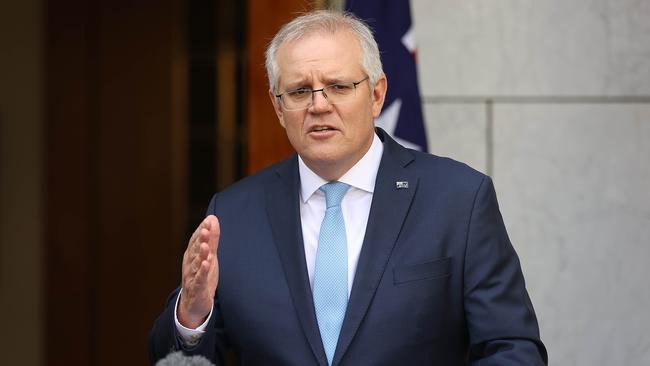
This partnership is designed to last for generations. It locks Australia even more tightly into American strategy and capability against the rising power of China.
In a deepening of the alliance, the US is giving Australia access to some of its tightest secrets in nuclear submarine technology.
Australia will live with the consequences for decades. Labor’s in-principle support guarantees this. It ties Australia to the US and UK in 21st century war-fighting technology. It means a more ambitious defence force structure. Its aim is to increase Australia’s influence and diplomatic clout in the Indo-Pacific.
Two forces have driven this historic event: China’s hostility and Morrison’s vision. China’s coercion has had a profound impact on Morrison and it has prompted him to ask Australia’s defence system: is a nuclear-powered submarine a possibility?
Morrison has worked towards this potential outcome since early 2020, more than 18 months ago.
The diplomatic dynamics have been equally important. It was in June this year at their three-way Carbis Bay meeting in the UK when Morrison, with British PM Boris Johnson, first put the proposal to US President Joe Biden. It was never raised with Donald Trump. Securing the President’s approval to this three-way Australia-UK-US partnership with Biden being in the White House for less than nine months is a remarkable achievement.
It reveals two things about Morrison: a long-run strategic vision in response to China’s coercion and an activist and bold diplomacy, from mobilising traditional ties with the US and UK to promoting Asian partners Japan and India in the Quad.
This event is a turning point for Australia. It locks Australia “forever” – to quote Morrison – into a compact with our traditional partners as distinct from any strategic option of working with China. That alternative option is now all but extinguished.
The AUKUS partnership only became possible because of two events, one technical, one strategic. The technical breakthrough was advice to Morrison that a civil nuclear industry – which was not a viable political option for Australia at this point – was no longer condition for a nuclear-powered submarine fleet.
The second event was the reassessment about China and Morrison’s conviction that Australia must recast its defence strategy – moving from conventional to nuclear submarines being the prime but not the only example of this rethink. China’s assertion made Australian access to America’s unique assets of technology, defence industry and force interoperability more vital.
It is crucial to grasp what AUKUS is and what it is not. It is not a treaty. It is not a formal defence compact. The treaty already exists and is being enhanced. It is not a door to nuclear weapons. It is not a marketing ploy dreamt up by Morrison a few weeks ago to solve his political problems. It is a three-way partnership to give Australia access to “state-of-art’ defence technology.
Our support for the nuclear non-proliferation treaty is not affected.
Managing the strategic competition from China has been the central organising principle of Morrison’s foreign policy, and that truth is now apparent.
Morrison has taken the initiative with Biden – he took a risk and he tested the Americans. Biden’s positive response will be seen as an early pointer to US strategic seriousness in the Indo-Pacific.
America’s support will not be obligation free. Morrison knows this — so does the Labor Party. Australia’s deeper ties to US technology means a deeper obligation to back the US in strategic terms against China. Yet this was always the case, courtesy of ANZUS.
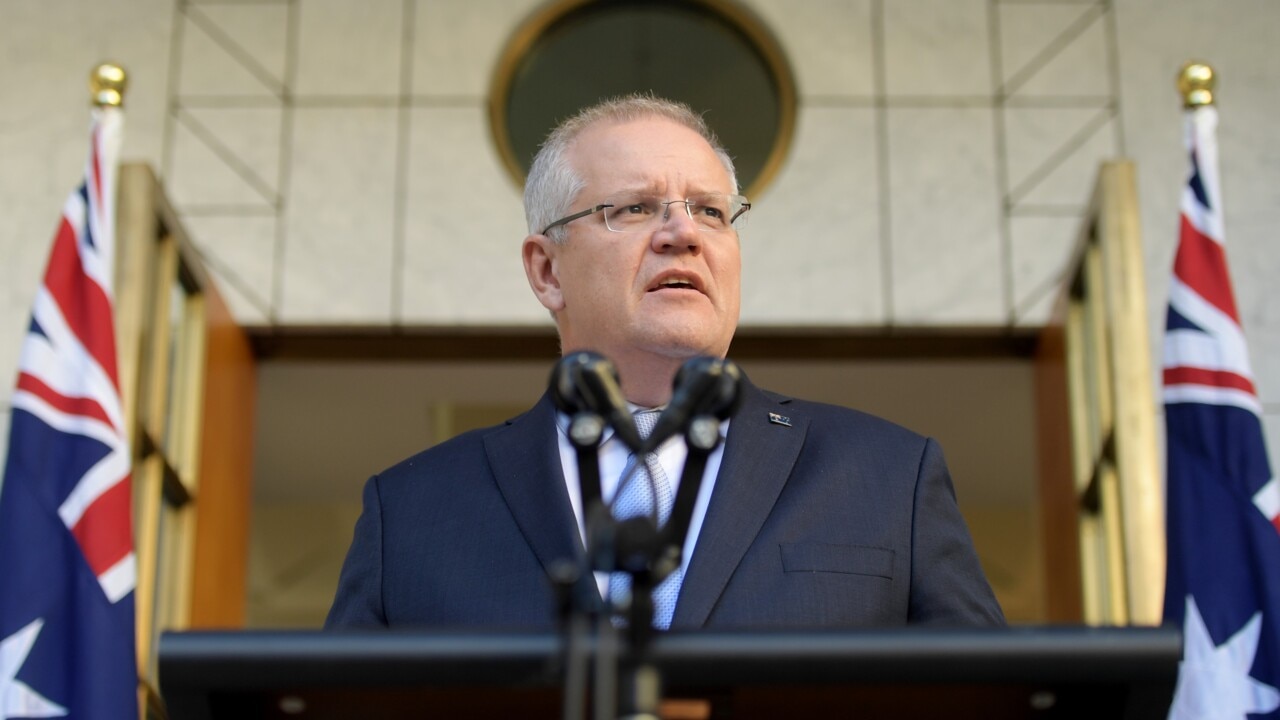
It is, however, Beijing’s aggressive behaviour that has carried Australia to seek these deeper US strategic ties. Given the balance of risks, this was always Australia’s likely response.
To be successful, this partnership must transcend the submarine deal. Morrison doesn’t want the partnership to be limited to submarines. Indeed, the submarine problem is far from fixed – the $90bn French deal is cancelled but the new deal will be more expensive and the first boats won’t hit the water till the late 2030s. The medium-term strategic problem still exists.
However, the nuclear submarine pledge is the passage to a new form of US alliance. A senior Biden administration official said support for an Australian nuclear-powered submarine was “an exception to our policy” and had only happened once before – with Britain in the 1950s. Under this deal, Australia, located in the Indo-Pacific, is destined to become America’s most trusted ally, more important than Britain.
Australia will pay a price for its latest policy reversal. On submarines, it offended first Japan and now France in its changes of mind. Labor is justified in saying it has been a shambles. Yet the government is right to change course and correct for past mistakes.
From the start, Morrison had a game plan: support the French submarine contract until there was a Plan B. At the start, a viable Plan B looked remote.
When Morrison dined with Emmanuel Macron in Paris mid-year, he told the French President the strategic situation had changed and a conventional submarine might not do the job. Morrison did not signal cancellation of the French contract. But the French won’t forget.
ALP leader Anthony Albanese has backed the deal. This is essential for Labor in the coming election. But the left of politics is allergic to anything nuclear. The Labor “true believers” will detest this, cultural progressives will scorn new ties with Britain, and the Greens are calling it a policy of “floating Chernobyls”. Morrison may yet get a national security issue for the poll.
More Coverage
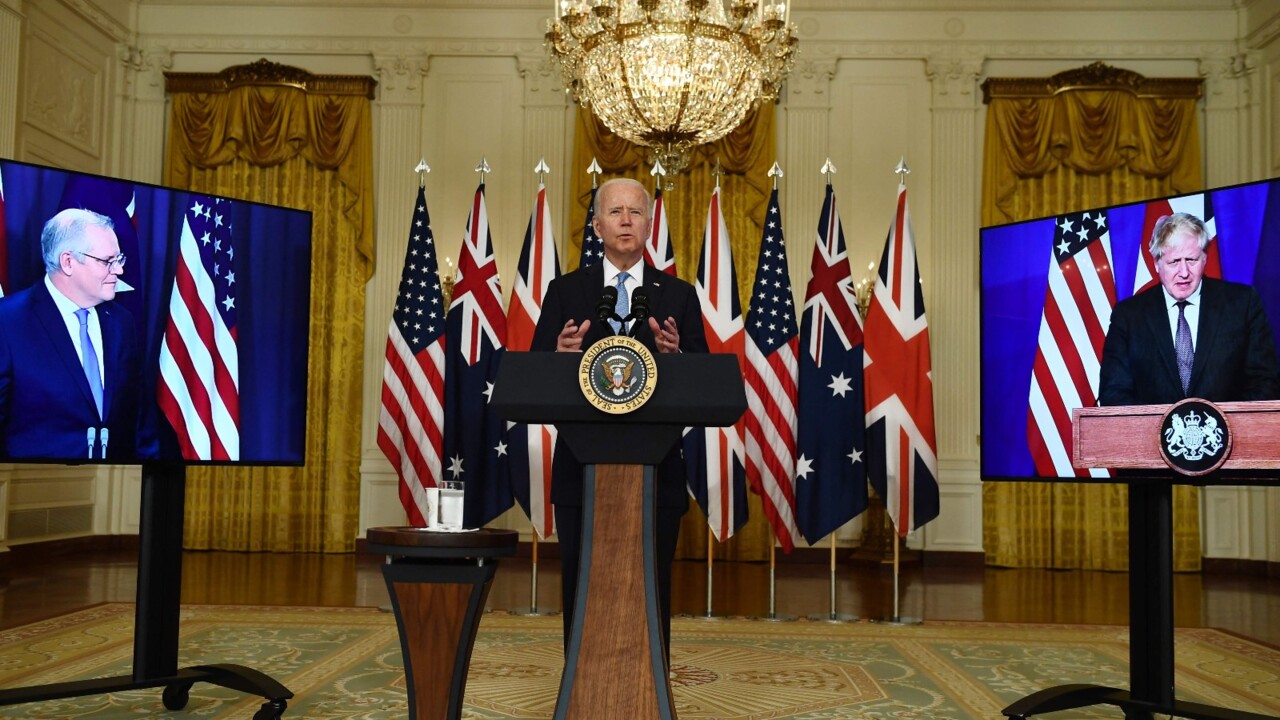



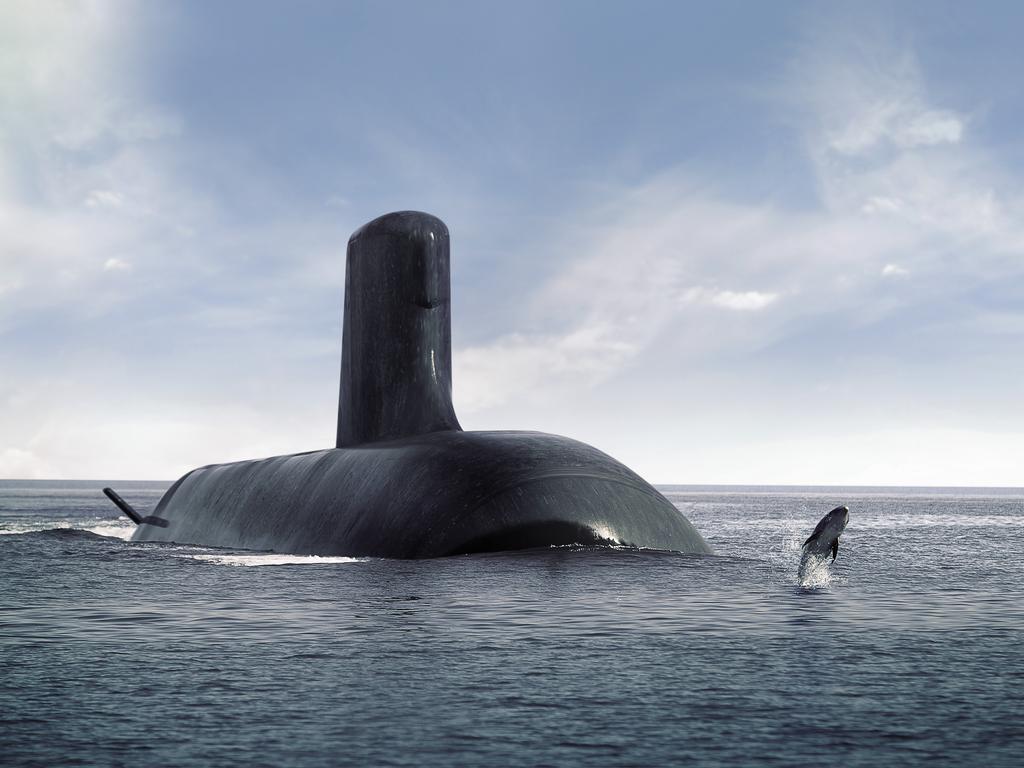
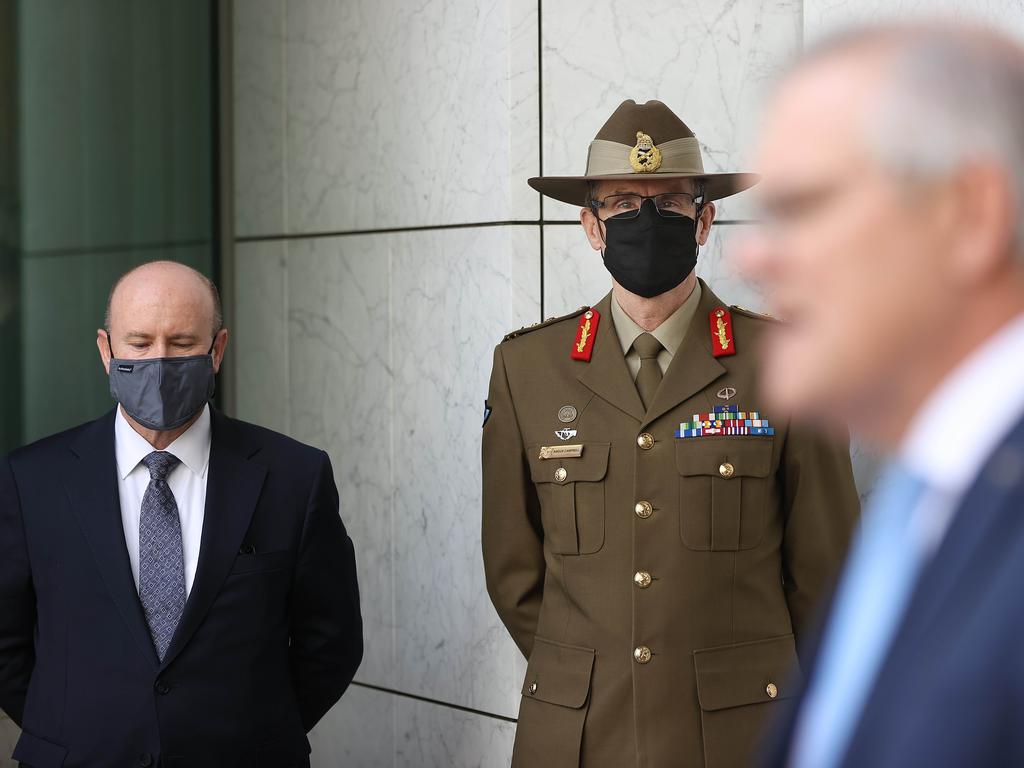



This is Australia’s most significant strategic decision since the ANZUS Treaty in 1951. It is Scott Morrison’s initiative — in its nuclear submarine component, its technological sweep and its diplomatic achievement.